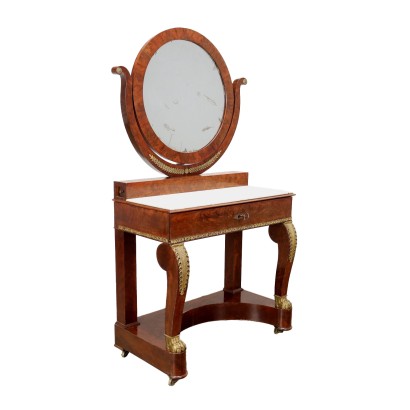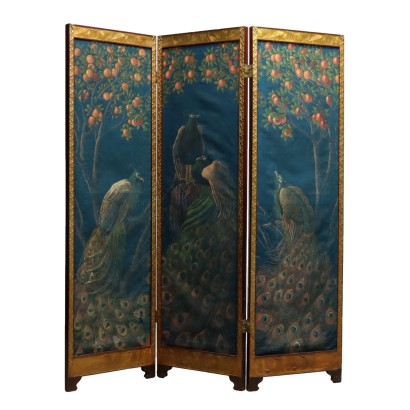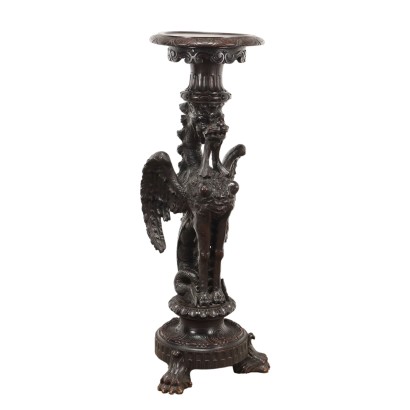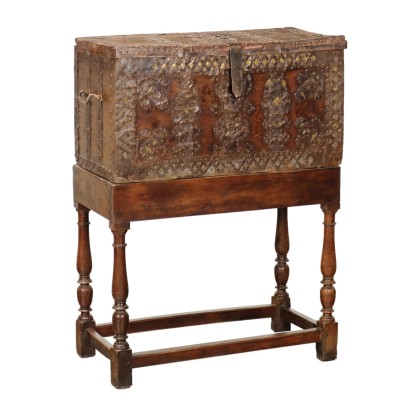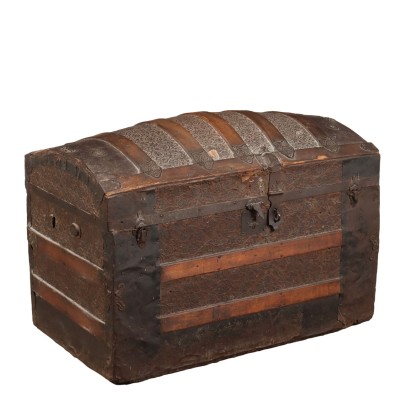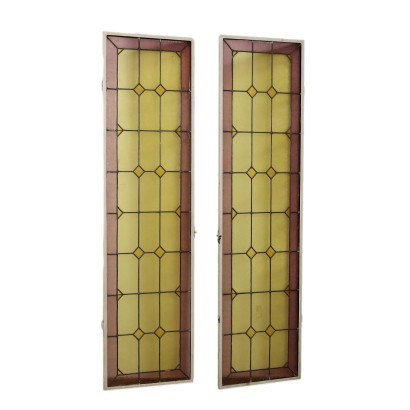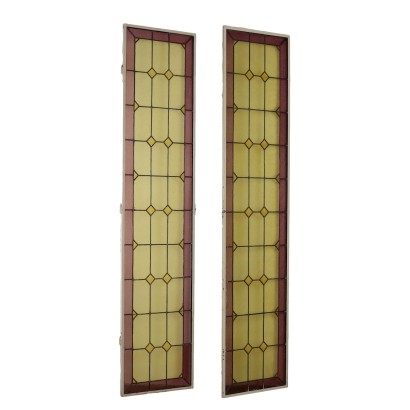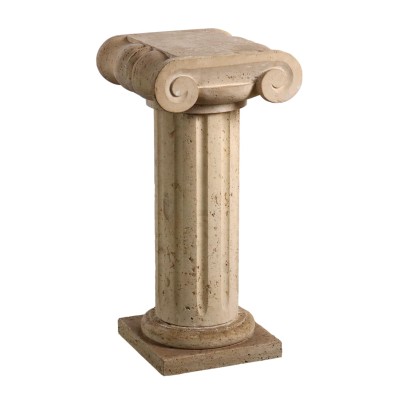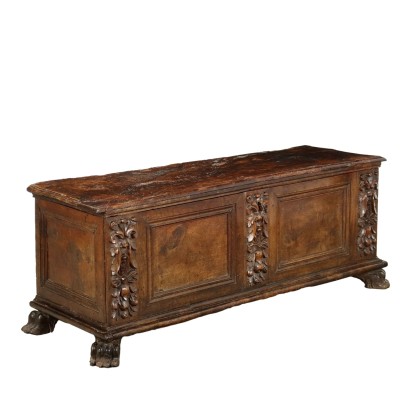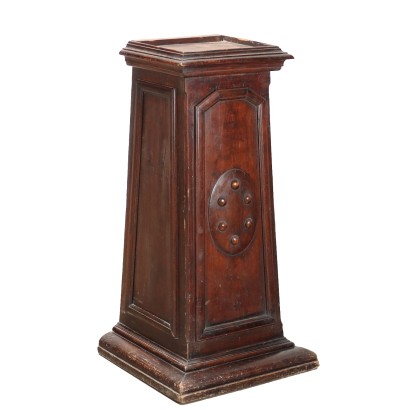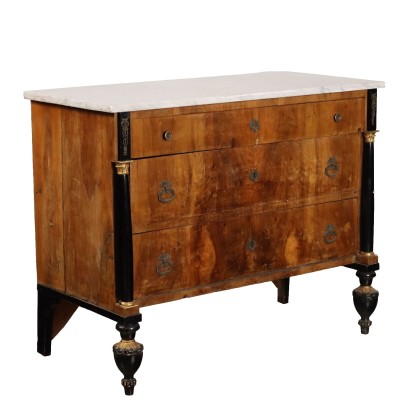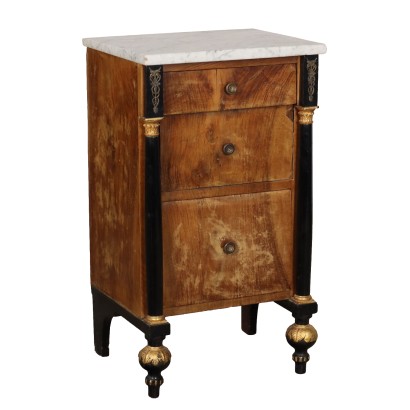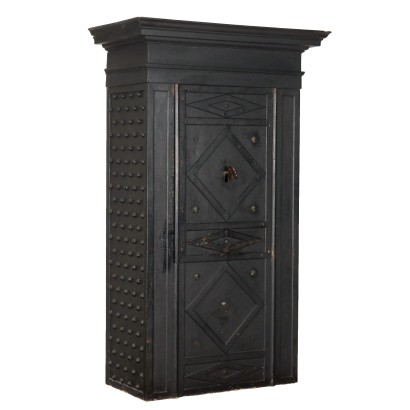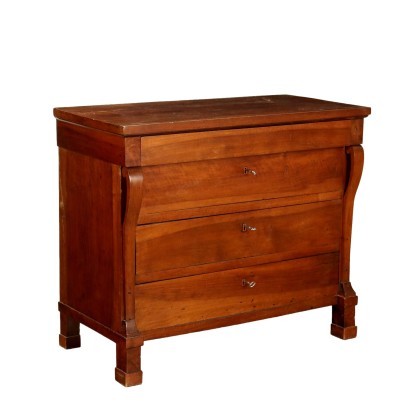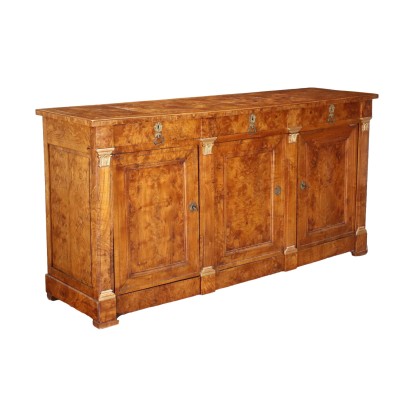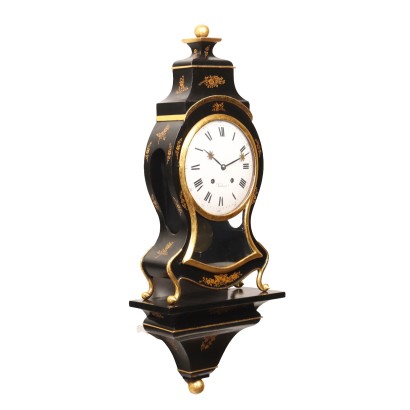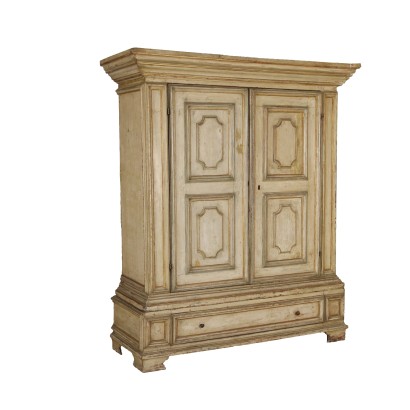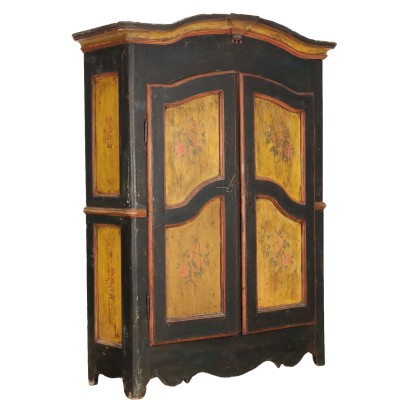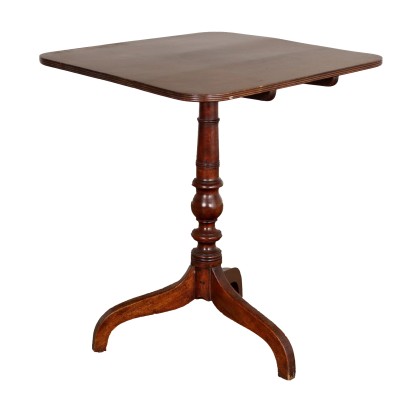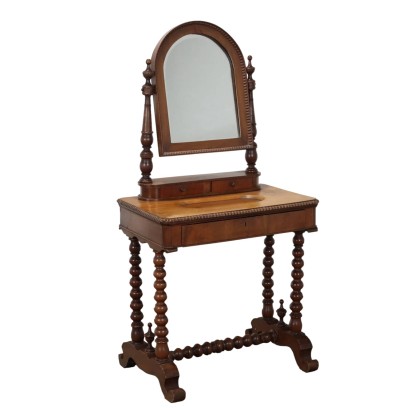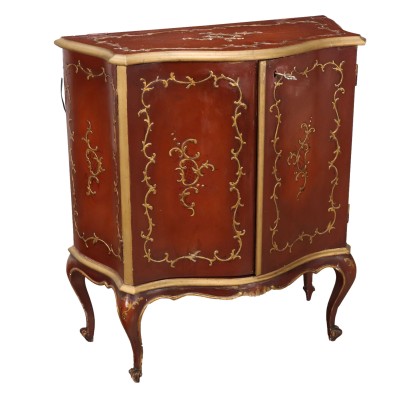Dressing Table Restoration Mahogany France XIX Century - France Second Fourth XIXth Century
Features
France Second Fourth XIXth Century
Style: Bourbon Restoration (1815-1830)
Age: 19th Century / 1801 - 1900
Origin: France
Main essence: Mahogany , Poplar
Material: Gilded Bronze , Leather , Mahogany Feather Banded Slab , White Marble , Mirror
Description
Restoration dressing table finished in a day entirely veneered with mahogany feather, France, second quarter of the 19th century. Stand with pair of side drawers and tilting mirror, top in white marble with tray, drawer in the band containing Moroccan insert placed on a sliding wooden panel; column rear legs, moved front legs, the latter ending with lion feet in gilded bronze resting on a shaped base with wheels. Decorated with leaves and floral elements in chiseled gilt bronze. Mahogany and poplar interior.
Product Condition:
Product that due to age and wear requires restoration and resumption of polishing.
Dimensions (cm):
Height: 166
Width: 90
Depth: 48
Additional Information
Style: Bourbon Restoration (1815-1830)
Starting from the Congress of Vienna in 1815, the arts also expressed the return to monarchical order and the desire for order after the years of war.The stylistic characteristics are an evolution of the Empire style, but with simpler lines and stripped of the typical symbols of the Napoleonic period.
There is greater attention to the practicality of the furniture and domestic use.
Find out more with the insights of our blog and FineArt on the Restoration style:
The return to the past in the Restoration period
Gueridon Restaurazione
INSERT ADDITIONAL LINKS
Austrian taste for Baroque
The history of French furniture
Age: 19th Century / 1801 - 1900
19th Century / 1801 - 1900Main essence:
Mahogany
It is one of the most precious and sought-after woods in cabinet making. It was discovered in Central America around 1600 and began to be imported to England in the 1700s. Much appreciated for its hardness and indestructibility, it became widespread following the blocking of walnut exports from France in 1720 and the consequent elimination of English import duties on mahogany from the colonies in America and India. The most valuable version comes from Cuba, but it became very expensive. At the end of the 18th century it began to be used also in France in Louis XVI, Directory and Empire furniture, its diffusion declined starting from when Napoleon, in 1810, forbade its import. It was generally used in the manufacture of elegant furniture, due to its characteristics and beautiful grain.Poplar
Essence considered "poor", it is a white wood, with yellowish or greyish shades, light and tender, which is easily damaged. It is used for rustic furniture or in the construction of furniture. The most valuable use it has had in the history of furniture is in Germany, in the 19th century, for veneers and inlays in the Biedermeier period.Material:
Gilded Bronze
Leather
Mahogany Feather Banded Slab
White Marble
Mirror
Other customers have searched:
Toilette, petineuse, vanity unit, lady's table, other antique furniture ..
To know more:
The timeless charm of the Toilette
On antiques in general also have a look at
Classic Monday: from a piece of our warehouses to the history of antiques
Antiques from A to Z: the Antiques Dictionary
.
If you are interested in antiques Discover here all the presentations of the most beautiful, elegant and precious antiques on FineArt by Di Mano In Mano
On antiques in general also take a look at:
Classic Monday: from a piece of our warehouses to the history of antiques
Antiques from A to Z: the Antiques Dictionary
The Antiques Dictionary - Pastiglia
Finally, take a look at our dissemination columns on the history of decorative and furnishing arts:
Epochs
Processing and techniques
Exhibitions and Events
Protagonists
Product availability
The product can be seen at Cambiago
Immediate availability
Ready for delivery within 2 working days from ordering the product.



